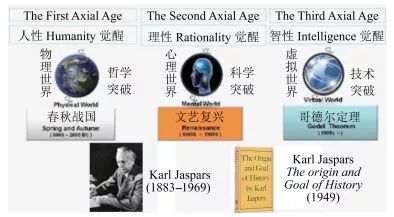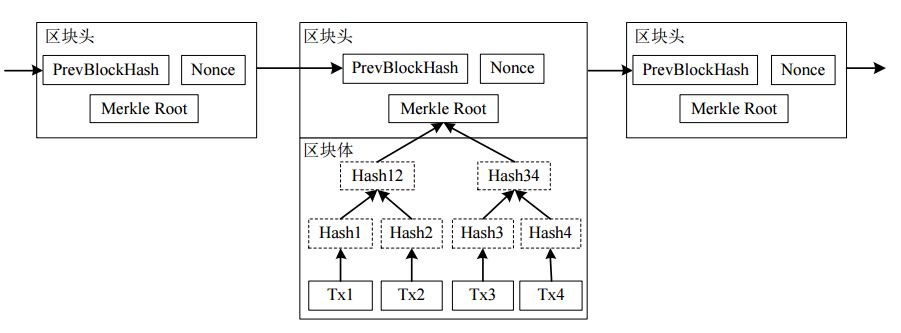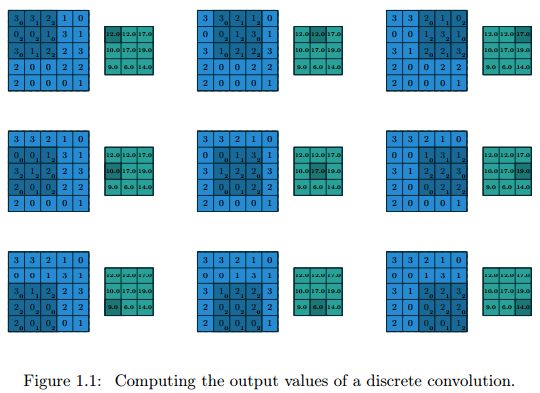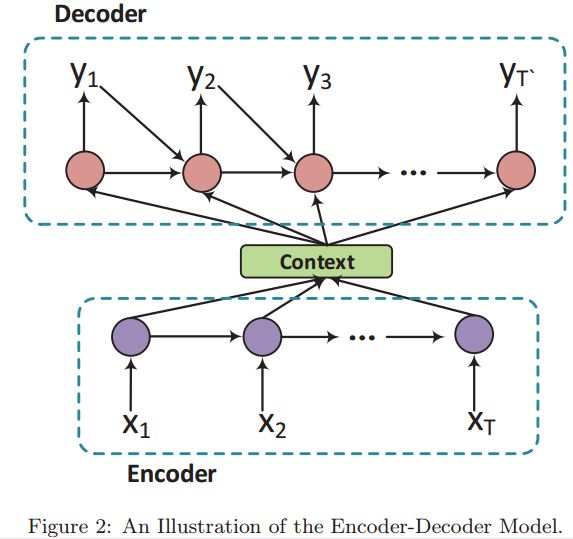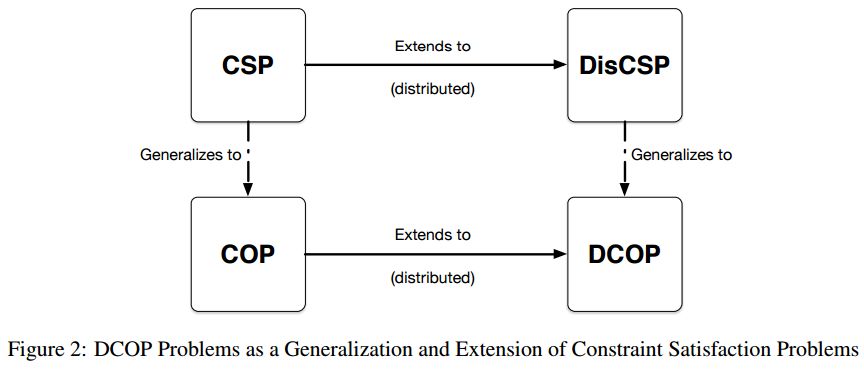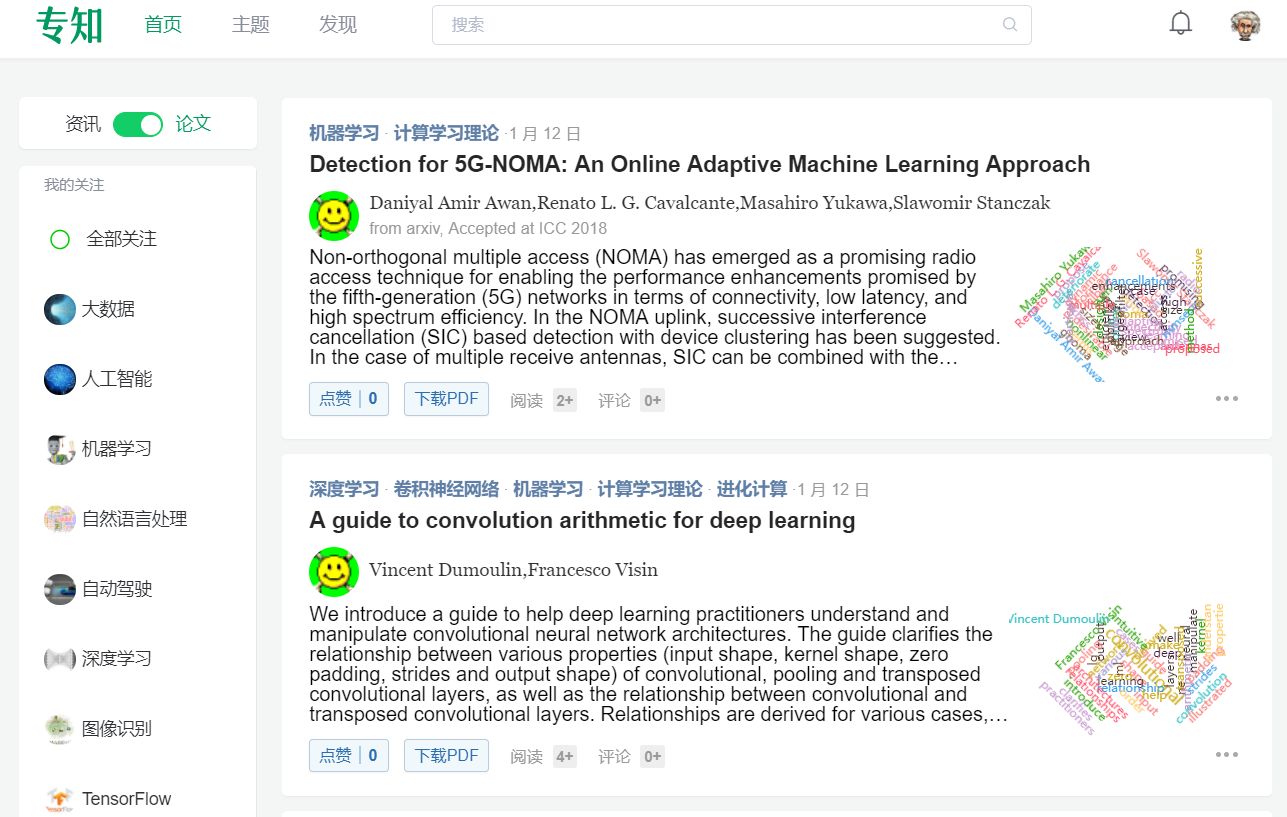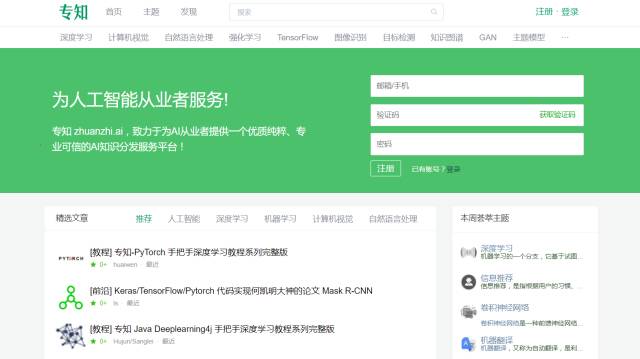【综述】最新5篇智联网/区块链/深度学习/对话系统/最优化等中英文综述论文推介
【导读】专知内容组整理了最近人工智能领域相关期刊的5篇最新综述文章,为大家进行介绍,欢迎查看!
▌智联网:概念、问题和平台
作者:王飞跃、张俊
摘要:本文旨在讨论智联网(Internet of minds,IoM)的基本概念,核心问题和关键平台技术.首先阐述智联网概念的智能时代发展需求和科学哲学思想基础,然后阐述智联网技术的背景、定义、实质,及其实现协同认知智能的目标,并举例说明其前沿应用领域,包括物理信息社会系统、软件定义系统及流程、工业智联网.接下来探讨智联网的核心问题:知识的获取、知识的协同表征和传递、以及知识的关联和协同运行.最后简单描述了智联网的关键平台技术,包括虚实平行的平台体系和基于互联网、物联网、区块链和软件定义网络的社会化通信计算平台,为分布式、自组织、自运行的安全智联网系统提供基础设施.
期刊:自动化学报, 2017, 43(12)
网址:
http://html.rhhz.net/ZDHXBZWB/html/2017-12-2061.htm
▌区块链技术:架构及进展
作者:邵奇峰,金澈清 ,张召 ,钱卫宁 , 周傲英
摘要:传统的数据库管理系统主要由单一机构管理和维护,在多方参与者协作的场景中,因无法完全信任数据库中的数 据,每方都需要单独构建一套承载自己业务数据的数据库,多方数据库间的数据差异会导致繁琐的人工对账和争议,而区块 链可解决这种多方间的信任问题。区块链作为一种去中心化、不可篡改、可追溯、多方共同维护的分布式数据库,可在互不 了解的多方间建立了可靠的信任,在没有第三方中介机构的协调下,划时代地实现了可信的数据共享和点对点的价值传输。 本文结合比特币、以太坊和 Hyperledger Fabric 等区块链平台,提出了区块链系统的体系架构;从区块链数据、共识机制、 智能合约、可扩展性、安全性几个方面阐述了区块链的原理与技术;通过与传统数据库对比,总结了区块链的优势、劣势及 发展趋势。
期刊:计算机学报, 2017
网址:
http://cjc.ict.ac.cn/online/cre/10xsqfs-2017127145754.pdf
▌A guide to convolution arithmetic for deep learning
作者:Vincent Dumoulin,Francesco Visin
摘要:We introduce a guide to help deep learning practitioners understand and manipulate convolutional neural network architectures. The guide clarifies the relationship between various properties (input shape, kernel shape, zero padding, strides and output shape) of convolutional, pooling and transposed convolutional layers, as well as the relationship between convolutional and transposed convolutional layers. Relationships are derived for various cases, and are illustrated in order to make them intuitive.
期刊:arXiv, 2018年1月12日
网址:
http://www.zhuanzhi.ai/document/6475ddb1d23222e238d8a5565d3c0903
▌A Survey on Dialogue Systems: Recent Advances and New Frontiers
作者:Hongshen Chen,Xiaorui Liu,Dawei Yin,Jiliang Tang
摘要:Dialogue systems have attracted more and more attention. Recent advances on dialogue systems are overwhelmingly contributed by deep learning techniques, which have been employed to enhance a wide range of big data applications such as computer vision, natural language processing, and recommender systems. For dialogue systems, deep learning can leverage a massive amount of data to learn meaningful feature representations and response generation strategies, while requiring a minimum amount of hand-crafting. In this article, we give an overview to these recent advances on dialogue systems from various perspectives and discuss some possible research directions. In particular, we generally divide existing dialogue systems into task-oriented and non-task-oriented models, then detail how deep learning techniques help them with representative algorithms and finally discuss some appealing research directions that can bring the dialogue system research into a new frontier.
期刊:arXiv, 2018年1月12日
网址:
http://www.zhuanzhi.ai/document/e569e4063ef5de99add0fa370e869ae5
▌Distributed Constraint Optimization Problems and Applications: A Survey
作者:Ferdinando Fioretto,Enrico Pontelli,William Yeoh
摘要:The field of Multi-Agent System (MAS) is an active area of research within Artificial Intelligence, with an increasingly important impact in industrial and other real-world applications. Within a MAS, autonomous agents interact to pursue personal interests and/or to achieve common objectives. Distributed Constraint Optimization Problems (DCOPs) have emerged as one of the prominent agent architectures to govern the agents' autonomous behavior, where both algorithms and communication models are driven by the structure of the specific problem. During the last decade, several extensions to the DCOP model have enabled them to support MAS in complex, real-time, and uncertain environments. This survey aims at providing an overview of the DCOP model, giving a classification of its multiple extensions and addressing both resolution methods and applications that find a natural mapping within each class of DCOPs. The proposed classification suggests several future perspectives for DCOP extensions, and identifies challenges in the design of efficient resolution algorithms, possibly through the adaptation of strategies from different areas.
期刊:arXiv, 2018年1月11日
网址:
http://www.zhuanzhi.ai/document/b58decfe117035c23f4ee78e12fbfefb
更多论文请上专知查看:PC登录 www.zhuanzhi.ai 点击论文查看
-END-
专 · 知
人工智能领域主题知识资料查看获取:【专知荟萃】人工智能领域26个主题知识资料全集(入门/进阶/论文/综述/视频/专家等)
请PC登录www.zhuanzhi.ai或者点击阅读原文,注册登录专知,获取更多AI知识资料!
请扫一扫如下二维码关注我们的公众号,获取人工智能的专业知识!
请加专知小助手微信(Rancho_Fang),加入专知主题人工智能群交流!
点击“阅读原文”,使用专知
